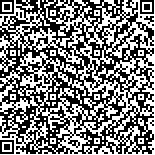| Quote
: |
李霞,曾勇,张稳.复方钩藤降压片调节TLR4/NF-κB信号通路对自发性高血压大鼠炎症状态的影响[J].湖南中医药大学学报英文版,2019,39(2):168-172.[Click to copy
] |
|
| |
|
|
| This paper
:Browser 3354times Download 1166times |
| 复方钩藤降压片调节TLR4/NF-κB信号通路对自发性高血压大鼠炎症状态的影响 |
| 李霞,曾勇,张稳 |
| (湖南中医药大学第一附属医院, 湖南 长沙 410000) |
| 摘要: |
| 目的 研究复方钩藤降压片对TLR4/NF-κB信号通路以及血管紧张素Ⅱ(angiotensinⅡ,AngⅡ)、血管紧张素(1-7)[angiotensin1-7,Ang(1-7)]、单核细胞趋化蛋白-1(monocyte chemoattractant protein-1,MCP-1)相关炎症因子表达的影响,探讨复方钩藤降压片对自发性高血压大鼠(spontaneously hypertensire rats,SHR)的可能降压机制。方法 将21只7周龄雄性SHR随机分为模型对照组(SHR组)、复方钩藤降压片治疗组(SHR-G组)、缬沙坦片治疗组(SHR-D组),另取7只雄性WKY大鼠为空白对照组(WKY组)。所有大鼠给予相应干预,6周后采用ELISA方法检测血清中AngⅡ、Ang(1-7)和MCP-1的含量;采用免疫组织化学方法检测胸主动脉内皮细胞中TLR4和NF-κB p65的蛋白水平。结果(1)SHR组血浆促炎因子AngⅡ、MCP-1的含量明显高于WKY组(P<0.05),而抑炎因子Ang(1-7)的含量明显低于WKY组(P<0.01);经复方钩藤降压片和缬沙坦片干预,可以明显降低SHR血浆中AngⅡ和MCP-1的含量(P<0.05),而增加血浆抑炎因子Ang(1-7)的含量(P<0.05 or P<0.01)。(2)SHR组胸主动脉内皮细胞中TLR4和NF-κB p65的蛋白水平明显高于WKY组(P<0.01);相对于SHR组,SHR-D和SHR-G组大鼠胸主动脉组织中TLR4和NF-κB p65的表达量显著降低(P<0.05 or P<0.01)。结论 复方钩藤降压片可通过抑制胸主动脉组织内皮细胞TLR4/NF-κB信号通路的活化,降低促炎因子AngⅡ、MCP-1的水平,提高抑炎因子Ang(1-7)的水平,抑制机体的炎症状态。 |
| 关键词: 复方钩藤降压片 自发性高血压 TLR4/NF-κB信号通路 血管紧张素II 血管紧张素(1-7) 单核细胞趋化蛋白-1 |
| DOI:10.3969/j.issn.1674-070X.2019.02.005 |
| Received:May 23, 2018 |
| 基金项目:国家自然科学基金项目(81473616);湖南省高校创新平台开放基金项目(15K095);湖南省中药粉体与创新药物省部共建国家重点实验室基金项目(ZYFT201503) |
|
| Effect of Compound Gouteng Jiangya Tablet on the Inflammatory State of Spontaneously Hypertensive Rats by Regulating the TLR4/NF-κB Signaling Pathway |
| LI Xia,ZENG Yong,ZHANG Wen |
| (The First Affiliated Hospital of Hunan University of Chinese Medicine, Changsha, Hunan 410000, China) |
| Abstract: |
| Objective To investigate the effect of Compound Gouteng Jiangya Tablet on the TLR4/NF-κB signaling pathway and the expression of angiotensin Ⅱ (AngⅡ) and angiotensin 1-7 [Ang(1-7)], monocyte chemotactic protein-1 (MCP-1)associated inflammatory cytokines and its possible antihypertensive mechanism in spontaneous hypertension rats (SHRs). Methods A total of 21 male SHRs aged 7 weeks were randomly divided into model control group (SHR group), Compound Gouteng Jiangya Tablet group (SHR-G group), and valsartan group (SHR-D group), and another 7 male WKY rats with the same age were selected as blank control group (WKY group). All rats were given the corresponding intervention, and 6 weeks later, ELISA was used to measure the serum levels of AngⅡ, Ang(1-7) and MCP-1, and immunohistochemistry was used to measure the protein expression of TLR4 and NF-κBp65 in thoracic aortic endothelial cells. Results Compared with the WKY group, the SHR group had significantly higher levels of the plasma proinflammatory factors AngⅡ and MCP-1 (P<0.05) and a significantly lower level of the anti-inflammatory cytokine Ang(1-7) (P<0.001). The treatment with Compound Gouteng Jiangya Tablet and valsartan significantly reduced the plasma levels of AngⅡ and MCP-1 in SHRs (P<0.05) and significantly increased the plasma level of the anti-inflammatory cytokine Ang(1-7) (P<0.05). The SHR group had significantly higher protein levels of TLR4 and NF-κB p65 in thoracic aortic endothelial cells than the WKY group (P<0.01), and compared with the SHR group, the SHR-D and SHR-G groups had significant reductions in the expression of TLR4 and NF-κB p65 in thoracic aorta tissue (P<0.01). Conclusion Compound Gouteng Jiangya Tablet can inhibit inflammatory state in the body by inhibiting activation of the TLR4/NF-κB signaling pathway in thoracic aortic endothelial cells, reducing the levels of the proinflammatory factors AngⅡ and MCP-1l, and increasing the level of the anti-inflammatory cytokine Ang(1-7). |
| Key words: Compound Gouteng Jiangya Tablet spontaneous hypertension TLR4/NF-κB signaling pathway angiotensin II angiotensin 1-7 monocyte chemotactic protein-1 |
|

二维码(扫一下试试看!) |
|


